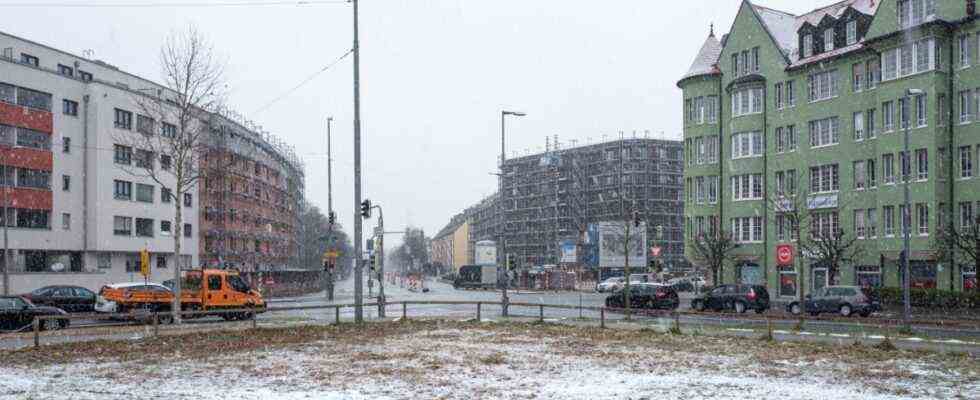Vacant plots in prominent locations are rare in densely populated Munich. In Pasing at the corner of Bodensee- and Maria-Eich-Straße there is one more, right at the bend of the federal highway B 2. But this area in the west of Munich is now also to be built on. Whether with apartments or with commercial space is still open. Six storeys are planned, staggered towards the west – a plan that significantly exceeds the planned building volume. Pasing’s local politicians have now rejected this plan – as have some others.
In principle, the citizens’ representatives have nothing against the size of the project on Bodenseestrasse, because the houses on the other side of the street would correspond with this line. What the district committee cannot approve is the complete sub-building of the property with a cellar and underground car park. In addition, because in the south of the area the “few large trees without the possibility of comparable substitute plantings” are to be removed. “That is too violent for us, even if we welcome the construction of apartments,” says Andreas Bergmann (Greens), chairman of the construction subcommittee. The area lies in an area for which the garden city character applies.
The vote is not an isolated case. In other places in the district, too, the committee has raised concerns about the construction of large underground car parks in order to be able to preserve trees or allow sufficient space for new plantings. For example at Bergsonstrasse 79-81, where a semi-detached house, two single-family and six terraced houses as well as a tiny house are to be built and where an underground car park is to be shared. The local politicians demand that the garage “should be planned so that larger trees can be planted”.
The district committee fears the appeal to grandfathering
An example at Schuegrafstrasse 6-8 is particularly serious. A five-story office building is to be erected there and an underground car park to be built in the entire rear part of the property, supplemented by above-ground parking spaces. “The district committee would basically agree with the cubage if apartments were built and the underground car park was partially moved under the building and planted with greenery,” says Bergmann. “However, we are strictly against realizing business again in this area, virtually through the back door.” Especially since this would exacerbate the already existing traffic problem.
The explosive thing about this case: the owner did not participate at the time when the industrial park was converted into the Paul-Gerhardt-Allee residential area. Since there are still some commercial properties in the area that enjoy grandfathering, the builder could now refer to this neighboring development, the citizens’ representatives fear. Your vote therefore: rejection.

